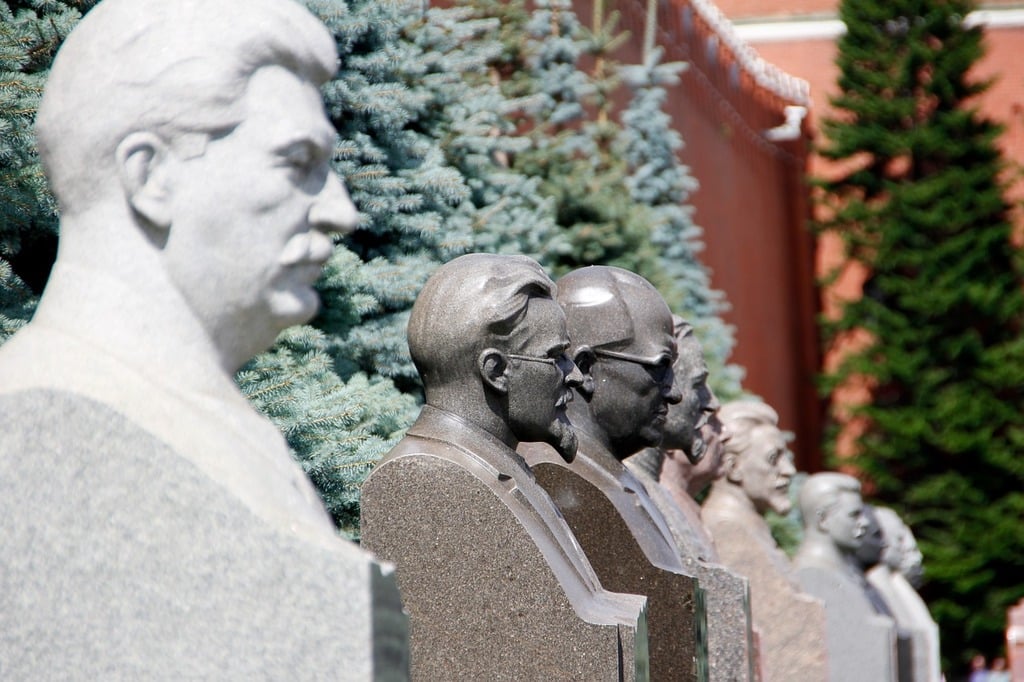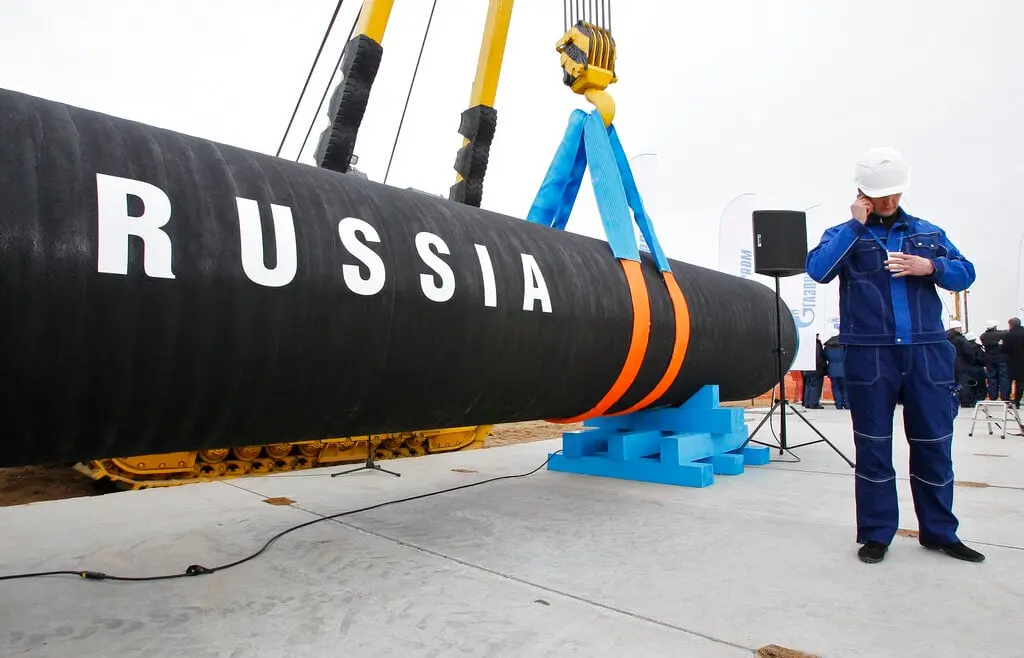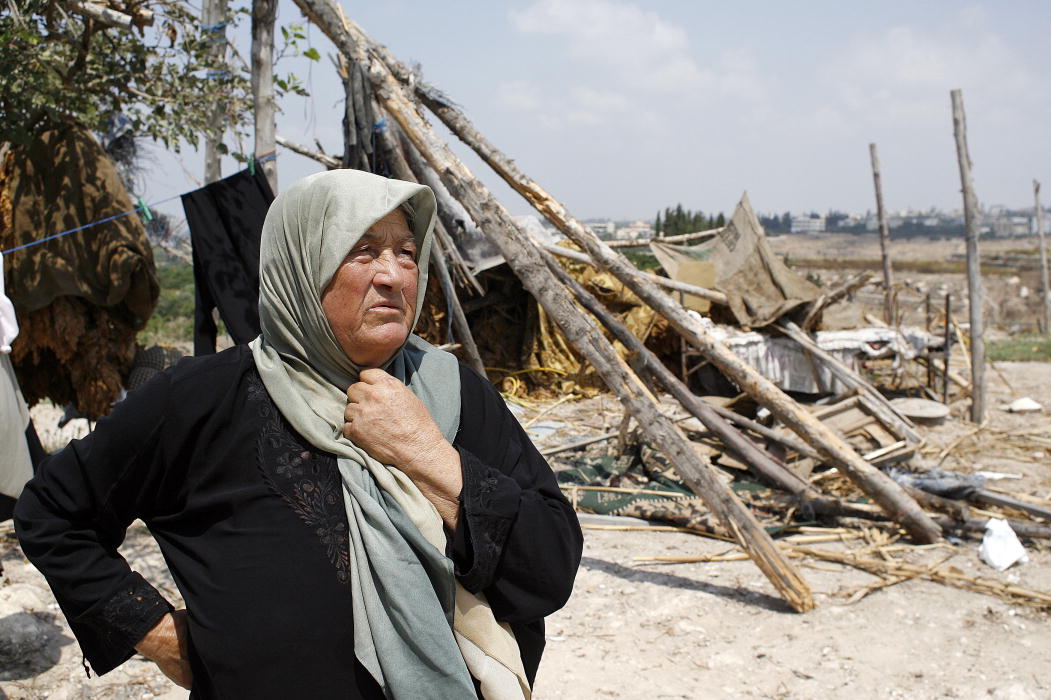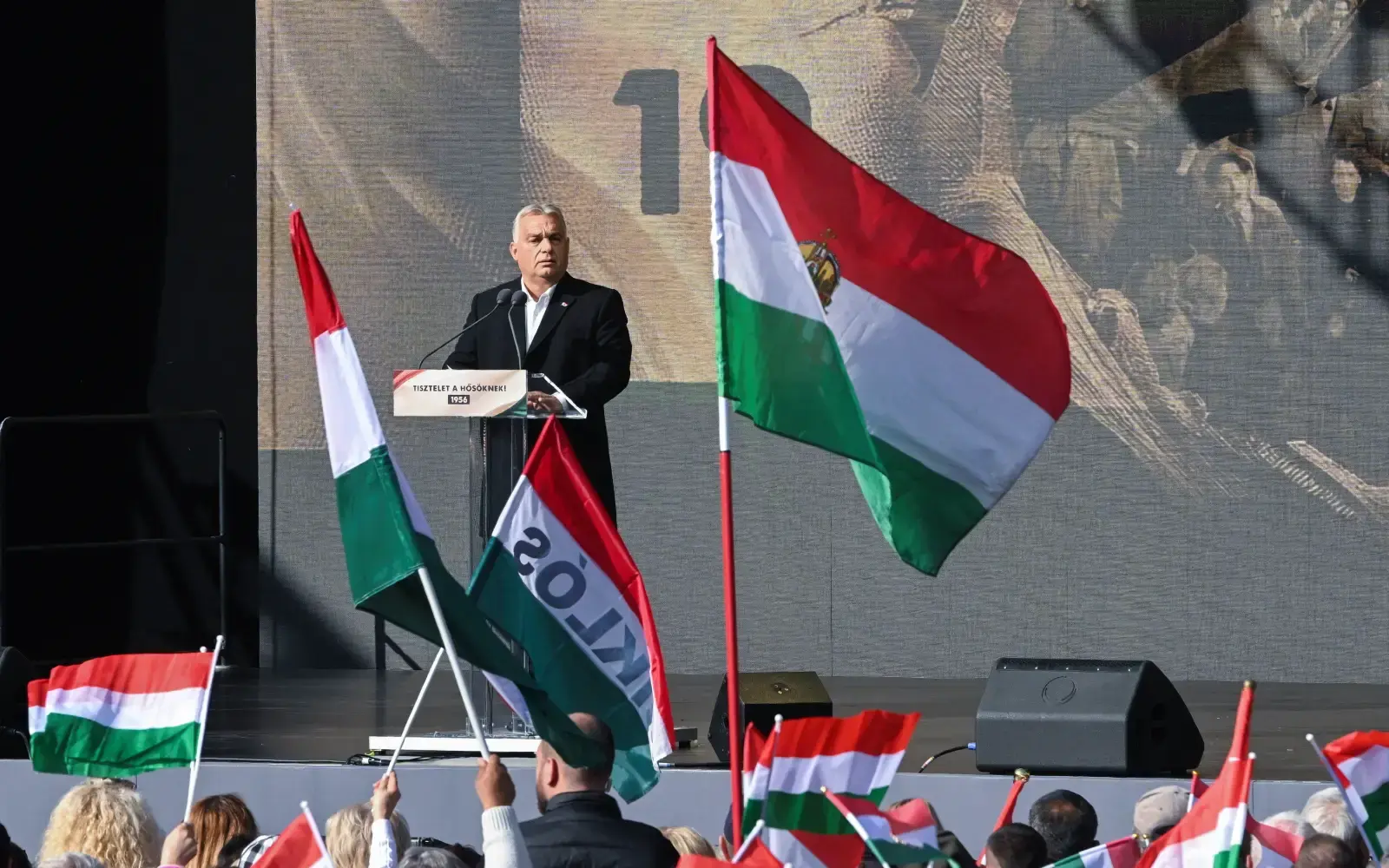Statues in Moscow's Red Square of former Soviet leaders (Source: Pixabay)
What on earth should we do with Russia when the war in Ukraine is over? However that war ends (Ukraine wins, an unsatisfactory peace deal or Russia still wins), we will have to relate to a country in Europe that has an aggressive behaviour against neighbouring countries not seen since WWII. Chechnya, Georgia, Moldova and Ukraine have fallen victim to it so far, and other (neighbouring) countries fear the worst. Putin - one must fear - does not stop at Ukraine.
The behaviour of the Russian (army) leadership towards civilians but also towards its own soldiers is unimaginably cruel. We already saw this in Chechnya and Syria but the same is happening in Ukraine. The number of murders at home and abroad of critics that the Putin regime has on its conscience now runs into dozens. The lying and twisting of facts to its own population but also in international bodies takes on almost ridiculous proportions. In Russia itself, repression is getting stronger. The independent press is already muzzled, demonstrations against government policies or the war are banned. Human rights organisations are declared foreign agents. Interest groups for minorities like gays are terrorist organisations. Foreign visitors must sign a declaration of loyalty to the Russian regime. Russia is worse off in terms of democracy and freedom of expression than under the last years of communism. It has become a mafia state. And protests from Russians themselves remain absent with few exceptions. Either they overwhelmingly support Putin or they fear the consequences of protest, no one can say for sure. Derek Sauer says a small minority is vehemently against the war in Ukraine, a slightly larger minority is vehemently in favour and the vast majority looks away. He could well be right. What to do with such a country?
Training & Democratic Hope
I myself have been to Russia about 10 or 12 times. The first time still when Gorbachev was president to investigate whether his glasnost and perestroika were genuine. The other times to train various emerging political parties on how to operate within a democratic system after the collapse of communism. In Moscow, St Petersburg, Novgorod, Kaluga and Novosibirsk, I met with enthusiastic, mostly young, aspiring politicians. Almost all of them were very optimistic about the possibility of a democratic Russia. It made you optimistic yourself.
However, I remember a conversation in a café in Novosibirsk with the organiser of a training session there in which my interlocutor had an extremely gloomy story. He feared a return under Putin (it was at the time of his first term as president) of dictatorship. I contradicted him, arguing that after all, we could criticise Putin's government here in a public café without fear of repercussions. That was true then, but not for a long time now. Unfortunately, he was right and I was wrong.
The Russian people are a special people in a number of ways. If you look at Russia's history, you are amazed at the capacity of Russians to endure a lot of inhuman suffering without rebelling. A docile people, not to say slavish. Amazed at the tendency of the Russians to accept their tsar, whoever that may be, a real tsar or a president as a demigod and to blame the mistakes of the regime not on the tsar but on and or other subordinate administrator. To tend to attribute a special destiny to their country in addition. Be it the third and final Rome or the Eurasian bulwark against the decadence of the West as Russian pseudo-philosopher and Putin whisperer Alexandr Doegin says. Amazed by Russians' acceptance of the appropriation of billions in state property by oligarchs and the endemic corruption in society from top to bottom, from the policeman on the street to the surgeon in the hospital.
I am beginning to fear that the majority of Russians have a low talent for democracy. This has a lot to do with their history. While in Western Europe the enlightenment broke through, the French revolution broke out and England was moving towards parliamentary democracy in its own way, Russia remained the feudal country it had been for centuries. The ordinary Russian does not revolt, at least it rarely did, and when it did happen once during World War I, which was disastrous for Russia, the revolt could be hijacked by a small group of communists who then elevated their leader Lenin to a new tsar. Russians do not know what democracy is and cannot wield it. The Russian people have never been able to govern themselves. Not for nothing did the Russians call the Vikings to their aid at the very inception of their nation to govern them because they could not do it themselves.
A country does not become democratic overnight. When I gave training courses in democracy, I once drew up (for myself) a list of conditions for establishing and sustaining a solid democratic system. Very briefly, I will mention them here:
- (rather logical) periodically free and fair elections with a choice between several parties but that is far from enough.
- independent and responsible media.
- The existence of a rule of law with independent courts, not only on paper (as in Russia) but also in fact.
- The existence of multiple power balances between various organisations in society (trade unions vs employers, consumer organisations, action groups, etc.).
- the creation and perpetuation of a healthy political culture, not only among politicians but also among voters. Vaclav Havel put it this way: the need to live in truth.
- A widely shared understanding that a majority must take into account the interests of a minority. In particular, the rights of ethnic minorities should be individually claimable.
- There must be material enough to distribute and the prospect of material progress for all groups.
- it helps if there is also a push towards democracy from the outside world.
- Building a democracy takes time, unfortunately often a lot of time.
Democracy emerges by trial and error
Democracy has to be learned by a people by trial and error and, as mentioned, over a long period of time. The second brief period in Russian history when there was nascent democracy was after the collapse of the communist system in 1990. Then (again regrettably briefly) there was a reasonably free press, independent and free political parties were formed and more or less normal elections were held. That was also the period when we could train aspiring politicians and try to show them the way in a democratic system. That period has long since passed again. We are back to "normal" Russian relations. The Russians again have a tsar in the person of Putin and they have a spiritual leader in the patriarch of Moscow Kirill who, as happened in the Middle Ages, gives the tsar his support and the war his victory. The millions of rural Russians get their information only from state-controlled media (especially television) and play no role at all politically. The (mostly male) young educated people from the big cities left the country en masse at the mobilisation that Putin declared. By necessity, the voice of Russian protest is mainly heard abroad.
And yet we have to relate to Russia. Now of course through sanctions and support to Ukraine but also later after the war. A situation like with Germany after WWII will not arise because - whatever happens - Russia will not lose so much that Moscow will be occupied by the victor and a war crimes tribunal à la Nuremberg can be held in Smolensk or the Hague to try Putin and his cronies. The chances that the Russians will go through a process of self-liquidation of their own accord like the Germans (incidentally, not voluntarily either) are not high. So what then?
Much will depend on how the war in Ukraine ends and whether Putin or a similar "tsar" remains in power. But some recommendations for our attitude towards Russia can already be formulated:
- Even if Putin disappears and a more liberal-looking regime emerges in Russia, we should continue to approach Russia with a healthy dose of suspicion. Democracy and respect for human rights have already been set aside twice after a short period. A third time is by no means imaginary. It will be a long time before we can trust Russia with confidence.
- We should therefore remain/be as independent as possible from Russian products whether they are energy carriers or whatever other essential commodities. That also means helping European countries currently dependent on Russian energy to reduce that dependence, if necessary with some gentle coercion.
- Sanctions can only be lifted on a change of regime in Russia, not on ending the war in Ukraine
- The effectiveness of those sanctions should - as long as they exist - be increased, shortcuts via third countries closed and controls increased. In particular, exports to Russia of militarily applicable products should remain excluded.
- We do need - however difficult it may be - to seek and maintain contact with critical minds in Russia and keep their plight constantly in the international spotlight.
- Radio Free Europe used to exist. Its purpose was to try to provide Russians and Russian-dominated countries with information outside the Communist Party-controlled media. Today's Russia has tried to influence developments and elections in the west through all kinds of manipulations via the internet. The west should be able to do better. Through the alternative media, it should again try to provide Russians with more objective information about what their government is up to.
- And finally this: as a recognised conscientious objector to military service, I never thought I would say this again: western defence capabilities (and certainly European ones) need to be increased.
There is a small reason for slight hope. Apparently, the Putin regime itself is not entirely confident that it can stay in power and win the war. Quite apart from the errors of judgement made regarding Ukraine's will to resist and the Western will to draw a line, Putin also has some serious reasons for concern internally. The performance of the Russian army has so far been far below par. The Wagner uprising shows a clear weakness in the control of the whole war process. One dissident after another was tackled and jailed under completely implausible charges. Potential electoral rivals were prevented from participating in the recent elections. The regime does all this for a reason. It is afraid of something. Afraid that the Russians won't put up with it all after all. Very cautiously, the wives of drafted soldiers are rising up against the constant violations of promises made about the duration of the war and the lengths of individual conscription. A well-known saying goes: you can fool some people all the time, you can fool all the people for a while but you cannot fool all the people all the time. Still, I hope this saying holds true in Putin's case too. Besides all the reasons already mentioned by others why Putin should not win the war in Ukraine, I would like to mention one last reason. If Putin wins, the hope for Russia's democratic development is again persecuted for decades. Putin should not win for weighty reasons for Ukraine and the West but also to give the Russian people another chance to grow up democratically.
This article is a guest submission to the Max van der Stoel Foundation. Also contribute to our analyses and articles? Send your piece to info@foundationmaxvanderstoel.nl





